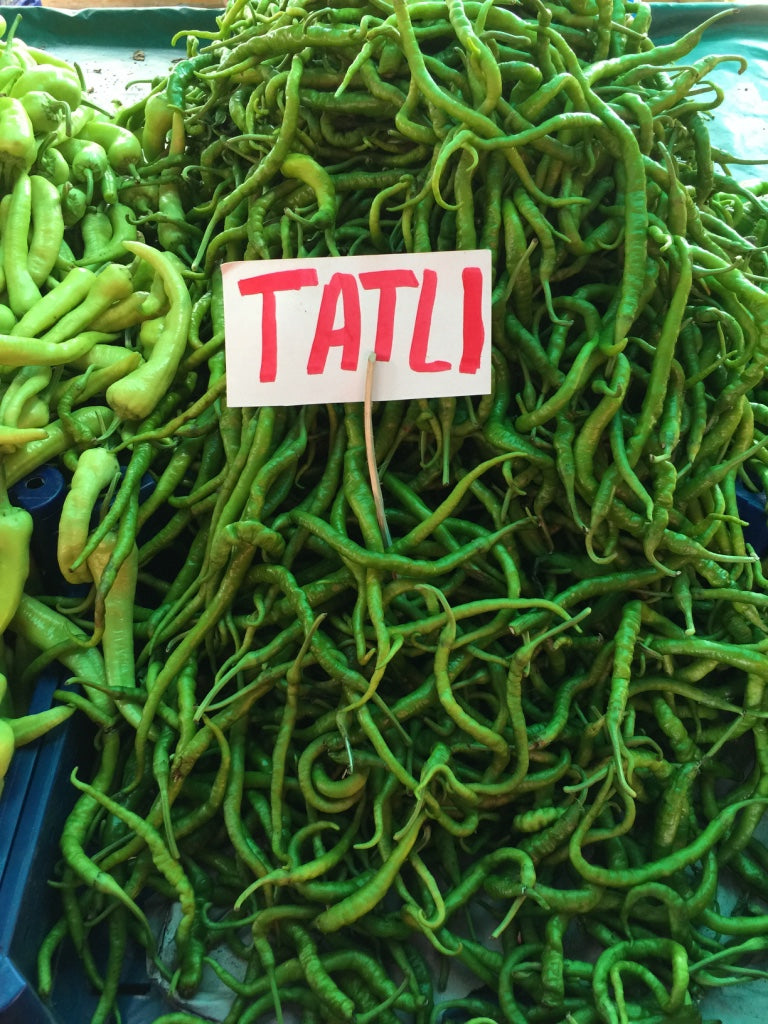
Food Shopping in Turkish Bazaars
Share
Turkiye is a magical place to visit for so many reasons, but it is particularly fantastic for satisfying all the senses of a passionate cook to come alive and hunt for unique ingredients, ancient products, and vintage-style home goods.

I’ve been a tourist as well as a resident in Turkiye so I’ve experienced what it’s like to shop both as a yabanci (foreigner) and a local, and these experiences are very different. It's best to really see the touristic things when you're visiting for the first time, but I suggest visiting as many local pazarli (bazaars) as possible if you want to have the most incredible experience and bring home some really fantastic ingredients.

Ihlamur, Turkish linden tea, is an indispensable tea for winter colds.
The Turkish word for bazaar is “pazar”. If you say “market” locals will send you to a grocery store such as Carrefour. In most places around Turkey and especially in Istanbul, there are market days several times a week if not everyday somewhere in Istanbul or a mid-size city like Bodrum where every surrounding neighborhood has a particular pazar day to showcase their goods, be it fruit and vegetables and/or textiles.

Istanbul is world famous for its various alleyway shops, antique markets and covered bazaars, or pazarli-- and there is very good reason for that. Situated in both Europe and Asia, a cook's paradise awaits in Istanbul and beyond where anyone looking can find interesting copper, brass, and stainless steel pots throughout the entire country, most of which are handmade in Turkiye.

My favorite spot in Istanbul for locating some of the greatest ingredients lies inside the Egyptian Spice Bazaar in Istanbul. There is a dizzying amounts of stalls carrying everything from incredible vintage wool carpets to handmade soaps to Turkish cotton linens and hand-tinned copper cookware before you even get to the spices, coffees and other dry goods such as apothecary-type stalls where the vendors are family-owned businesses selling everything from regional honey to handmade soaps.
In my opinion, local pazars are more interesting and better priced than the touristic shopping centers because you will see local people shop for their weekly produce and also find many interesting locally made products, depending on the region (i.e. olive wood products in the Aegean side or other hand made wood products in the Black Sea area). You can also almost always find food stalls selling delicious homemade (sometimes right in front of you), local dishes like this gozleme, pictured below. It's basically a savory pancake that is filled with cheese, spinach, sometimes ground meat. You can usually sit down at tables and eat there, too.

Bargaining is a lot of fun and shop or stall owners embrace it and in fact expect it. It helps to know a few Turkish words for the numbers, but most of the time someone will pull out a calculator and show you the price in dollars or Turkish lira. Not all vendors will speak fluent English, so it is helpful to know a few phrases, such as: fiyat ne kadar? (what is the price?) or ne kadar bu? (how much is this?)

Fethiye Fish Market
Many towns and villages will have a variety of types of pazars, and they could also be seasonal. For example, in the summer you may find handmade pazaars specifically on display during the evening along the marina, such as a handmade pazar in Turgutreis (Bodrum). Many larger cities or towns will have a specific day for textiles versus food. Some pazaars may even be specifically “Organik’ or “Dogal” (natural), which is becoming more popular.
If you’re looking to buy copper cookware or serving ware, you can find them everywhere. Just be sure that once you’ve purchased a copper product that it is being weighed before you’re given a price. This indicates that it is real copper. Many times you’ll find that you can bring your pots back to the same vendor should they ever need tinning- that’s quite difficult and more expensive to do just about everywhere else.
Turkey has been experiencing very high inflation, which has put a lot of strain on the locals, but they are adjusting for that inflation everywhere and in the recent past prices were changing daily, so be sure to purchase at the moment when you feel you’re getting a good deal for what you want.
I hope this will get you inspired and excited to enter the world of Turkish home cooking by introducing you to spices and dried goods as well as the cookware that you will be delighted to use when cooking!
I wrote a similar article on shopping for Turkish home goods that appeared here in Apartment Therapy's digital magazine.
